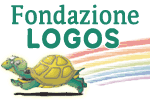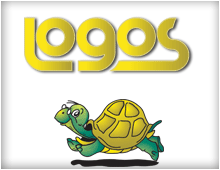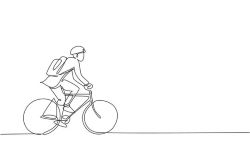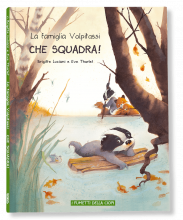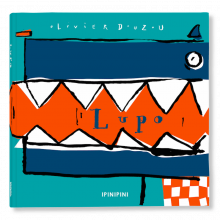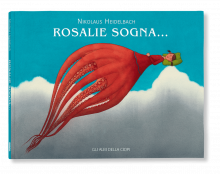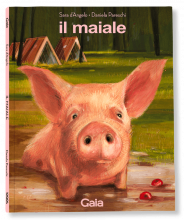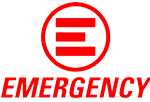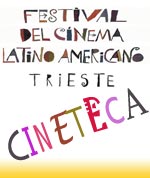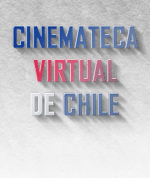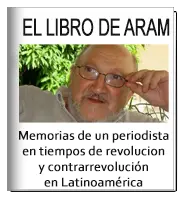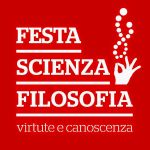Tag: Mostra Communication
Totale: 88
Electricity and Gas: You choose!
Already effective in nine Member States, the liberalisation of gas and electricity markets comes into effect throughout the European Union from July 1, 2007. Consumers of electricity and gas across the whole EU now have the right to freely choose their supplier. Competitive prices, a quality service and consumers’ rights protection should be the benefits of this liberalisation, started more than 10 years ago by the European Commission. The liberalisation of the gas and electricity markets should also reinforce the interconnections between the Member States and ... continua
- Visualizzazioni: 2707
- Lingua:
 | Sottotitoli:
| Sottotitoli: 
- Fonte: MOSTRA | Durata: 10,34 min | Pubblicato il: 11-2007
-

- Categoria: Informaciones
- Tag: Mostra Communication
- Scarica: MP3 | MP4 | alta risoluzione
- Condividi Commenta
CITES: protecting endangered species
Commonly referred to by its acronym of CITES, the Convention on International Trade in Endangered Species of Wild Fauna and Flora is a long-standing international agreement adopted in Washington in 1973, under the aegis of the United Nations. It has been in force since 1975. The 171 States (including the Member States of the European Union) who subscribe to this convention are committed to regulating international trade in wild animals and plants so as to prevent the threat of trade to species in danger of extinction. The European Union is an active ... continua
- Visualizzazioni: 2058
- Lingua:
 | Sottotitoli:
| Sottotitoli: 
- Fonte: MOSTRA | Durata: 12,19 min | Pubblicato il: 11-2007
-

- Categoria: Informaciones
- Tag: Mostra Communication
- Scarica: MP3 | MP4 | alta risoluzione
- Condividi Commenta
Living with Climate Change
Global warming is happening. Temperatures have already risen by 0.76 degrees since the industrial revolution and are projected to rise further by 1.8 - 4 degrees by the end of the century. The last time climate change happened at this pace was 125,000 years ago and led to a 4-6 metre sea level rise.
Global warming at the upper end of the scale predicted by the Intergovernmental Panel on Climate Change would have catastrophic consequences for Europe. Up to 30% of plant, animal and bird species would be wiped out and the threat of natural disasters such as landslides, ... continua
Global warming at the upper end of the scale predicted by the Intergovernmental Panel on Climate Change would have catastrophic consequences for Europe. Up to 30% of plant, animal and bird species would be wiped out and the threat of natural disasters such as landslides, ... continua
- Visualizzazioni: 2040
- Lingua:
 | Sottotitoli:
| Sottotitoli: 
- Fonte: Mostra Communication | Durata: 11,21 min | Pubblicato il: 26-10-2007
-

- Categoria: Informaciones
- Tag: Mostra Communication
- Scarica: MP3 | MP4 | alta risoluzione
- Condividi Commenta
Road Safety: Everybody's Business
The first-ever European Road Safety Day, dedicated to young drivers, will be held in Brussels on 27 April 2007.
The event is the European Commission's way of reminding young people that road safety is everyone's business. It is also meant to help maintain the impetus around its action programme aimed at saving 25 000 lives a year in 2010 compared to 2001, in other words, halving the 50 000 fatalities registered in 2001.
Interviews:Jacques Barrot: Vice President of the European Commission responsible for Transport.
Serge Morelli: President CLUB 14.
Ivan Hodac: ... continua
The event is the European Commission's way of reminding young people that road safety is everyone's business. It is also meant to help maintain the impetus around its action programme aimed at saving 25 000 lives a year in 2010 compared to 2001, in other words, halving the 50 000 fatalities registered in 2001.
Interviews:Jacques Barrot: Vice President of the European Commission responsible for Transport.
Serge Morelli: President CLUB 14.
Ivan Hodac: ... continua
- Visualizzazioni: 2332
- Lingua:
 | Sottotitoli:
| Sottotitoli: 
- Fonte: Mostra Communication | Durata: 8,53 min | Pubblicato il: 04-2007
-

- Categoria: Informaciones
- Tag: Mostra Communication
- Scarica: MP3 | MP4 | alta risoluzione
- Condividi Commenta
Turning waste into resources
As Europe grows wealthier it creates more and more rubbish. Every man, woman and child in the EU generates over a kilo of waste every day. Multiply that figure by nearly half a billion EU citizens and it quickly becomes clear that managing our waste without harming the environment is a major headache.
European citizens are deeply concerned about the waste mountain building up around them and there is a growing realization that we cannot continue dumping vast quantities of rubbish without serious environmental consequences. But this has not stopped the amount of waste ... continua
European citizens are deeply concerned about the waste mountain building up around them and there is a growing realization that we cannot continue dumping vast quantities of rubbish without serious environmental consequences. But this has not stopped the amount of waste ... continua
- Visualizzazioni: 2799
- Lingua:
 | Sottotitoli:
| Sottotitoli: 
- Fonte: Mostra Communication | Durata: 6,16 min | Pubblicato il: 04-2007
-

- Categoria: Informaciones
- Tag: Mostra Communication
- Scarica: MP3 | MP4 | alta risoluzione
- Condividi Commenta
Protecting the tree of Life
Europe is a continent of breathtaking natural beauty and dramatic contrasts. The EU?s 27 Member States stretch from the frozen Arctic Circle in the north to the warm Mediterranean waters in the south. From the wave-lashed Atlantic coast in Ireland to the snow-capped Carpathian mountains in Romania, the EU includes a vast range of natural habitats and a great diversity of flora and fauna.
Our natural heritage includes several thousand types of habitat, 520 species of bird, 10 000 plant species and at least 100 000 species of invertebrate. Yet, in comparison with other ... continua
Our natural heritage includes several thousand types of habitat, 520 species of bird, 10 000 plant species and at least 100 000 species of invertebrate. Yet, in comparison with other ... continua
- Visualizzazioni: 2025
- Lingua:
 | Sottotitoli:
| Sottotitoli: 
- Fonte: Mostra Communication | Durata: 6,23 min | Pubblicato il: 04-2007
-

- Categoria: Informaciones
- Tag: Mostra Communication
- Scarica: MP3 | MP4 | alta risoluzione
- Condividi Commenta
Giving Europe more breathing space
Clean air is essential to our own health and that of the environment. But since the industrial revolution, the quality of the air we breathe has deteriorated considerably - mainly as a result of human activities. Rising industrial and energy production, the burning of fossil fuels and the dramatic rise in traffic on our roads all contribute to air pollution in our towns and cities - and damage our natural environment.
Centuries of treating nature like a dustbin has had disastrous consequences on our environment. For example, around 20 % of forests and lakes in ... continua
Centuries of treating nature like a dustbin has had disastrous consequences on our environment. For example, around 20 % of forests and lakes in ... continua
- Visualizzazioni: 2625
- Lingua:
 | Sottotitoli:
| Sottotitoli: 
- Fonte: Mostra Communication | Durata: 6,10 min | Pubblicato il: 04-2007
-

- Categoria: Informaciones
- Tag: Mostra Communication
- Scarica: MP3 | MP4 | alta risoluzione
- Condividi Commenta
Getting Europe's precious waters clean again
Most of Europe does not suffer from droughts, floods or poor water quality. Water-borne diseases, such as dysentery, are rare and most tap water is so clean it can be drunk without the danger of falling ill. However, water resources in Europe are, in many areas, under threat from a range of human activities, affecting the quality of inland and marine waters.
Almost a third of Europe?s population lives in countries that experience high water stress. Nitrate and pesticide pollution of groundwater, often caused by farming, remains a significant problem. And water ... continua
Almost a third of Europe?s population lives in countries that experience high water stress. Nitrate and pesticide pollution of groundwater, often caused by farming, remains a significant problem. And water ... continua
- Visualizzazioni: 2202
- Lingua:
 | Sottotitoli:
| Sottotitoli: 
- Fonte: Mostra Communication | Durata: 9,11 min | Pubblicato il: 04-2007
-

- Categoria: Informaciones
- Tag: Mostra Communication
- Scarica: MP3 | MP4 | alta risoluzione
- Condividi Commenta
From Farm to Fork - Safe Food for European Consumers
Europe is the world's biggest importer and one of the top exporters. To maintain control over the diversity and quality of products within the member states, the european commission has developed laws, regulations and structures. Protecting the health of consumersis a priority in Europe.
The Food and Veterinary Office is located in grange, in Ireland. It is one of the branches of the European Comission charged with supervising the application of food safety laws in Europe. More than a hundred veterinary inspectors are based there.
Interviews:Graham Wood: Inspector, ... continua
The Food and Veterinary Office is located in grange, in Ireland. It is one of the branches of the European Comission charged with supervising the application of food safety laws in Europe. More than a hundred veterinary inspectors are based there.
Interviews:Graham Wood: Inspector, ... continua
- Visualizzazioni: 2190
- Lingua:
 | Sottotitoli:
| Sottotitoli: 
- Fonte: Mostra Communication | Durata: 10,33 min | Pubblicato il: 04-2007
-

- Categoria: Informaciones
- Tag: Mostra Communication
- Scarica: MP3 | MP4 | alta risoluzione
- Condividi Commenta
European fisheries: a strategy for eliminating discards.
In Europe, fishing is generally quite targeted. Fishermen know what they want to catch and use the appropiate methods and techniques. Despite this, when they bring their nets in, they often find other fish and marine organisms mixed up with the target species: thus is what is called the by-catch.
Everything in the net has to be sorted and only the fish that can be sold are kept. The rest are returned to the sea, ehre they stand little chance of surviving after the shock of being hauled to the surface. These are what are called discards.
Interviews:Dr. Andy Revill: ... continua
Everything in the net has to be sorted and only the fish that can be sold are kept. The rest are returned to the sea, ehre they stand little chance of surviving after the shock of being hauled to the surface. These are what are called discards.
Interviews:Dr. Andy Revill: ... continua
- Visualizzazioni: 2398
- Lingua:
 | Sottotitoli:
| Sottotitoli: 
- Fonte: Mostra Communication | Durata: 11,00 min | Pubblicato il: 04-2007
-

- Categoria: Informaciones
- Tag: Mostra Communication
- Scarica: MP3 | MP4 | alta risoluzione
- Condividi Commenta

